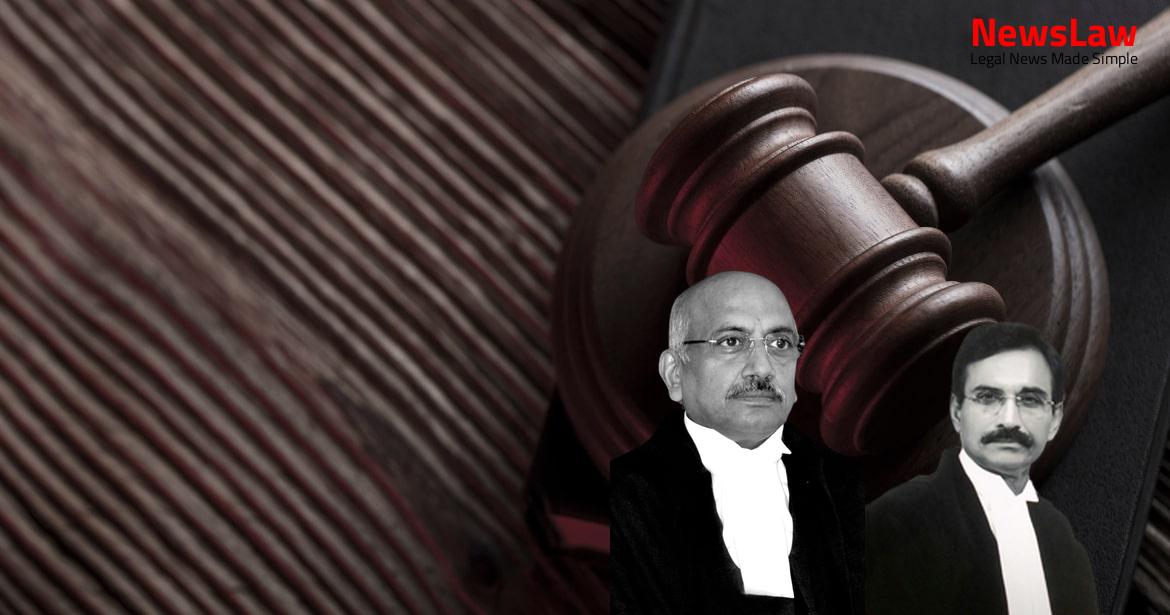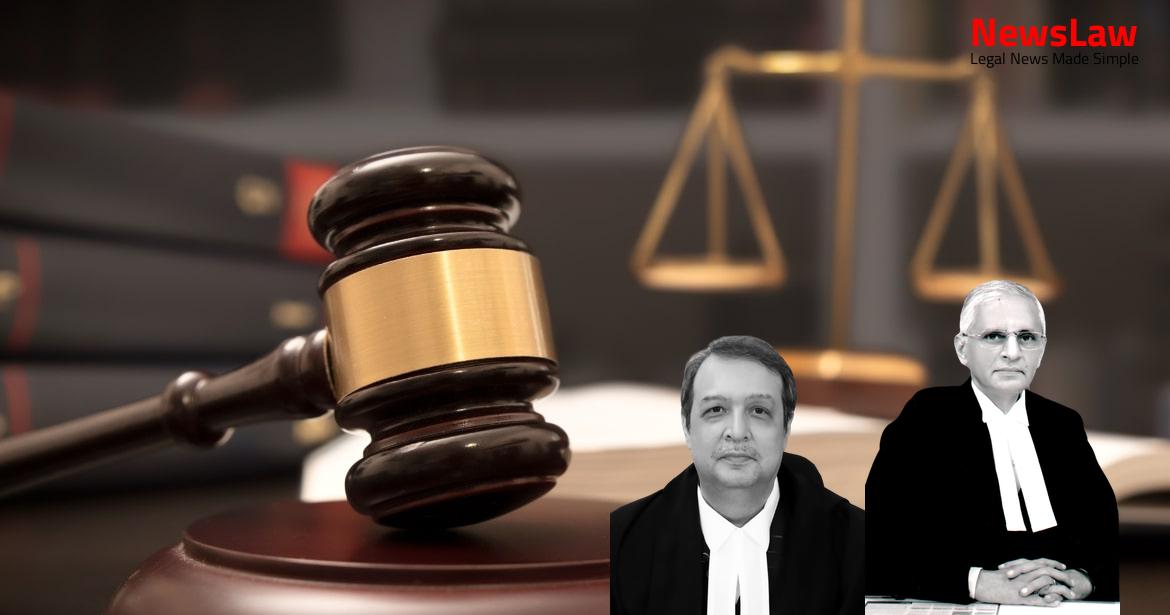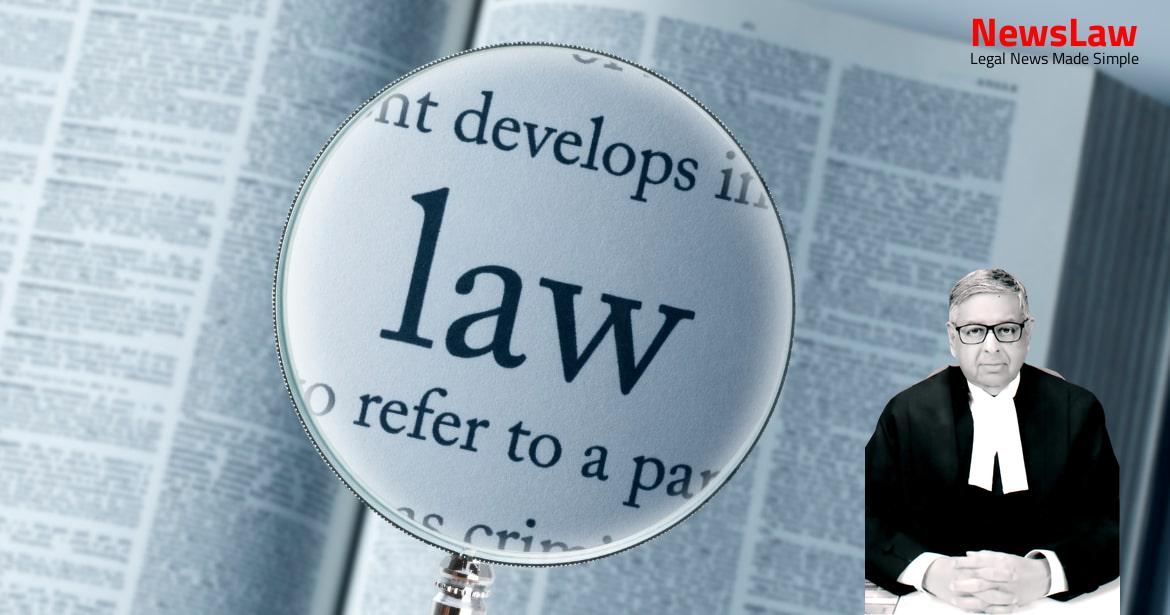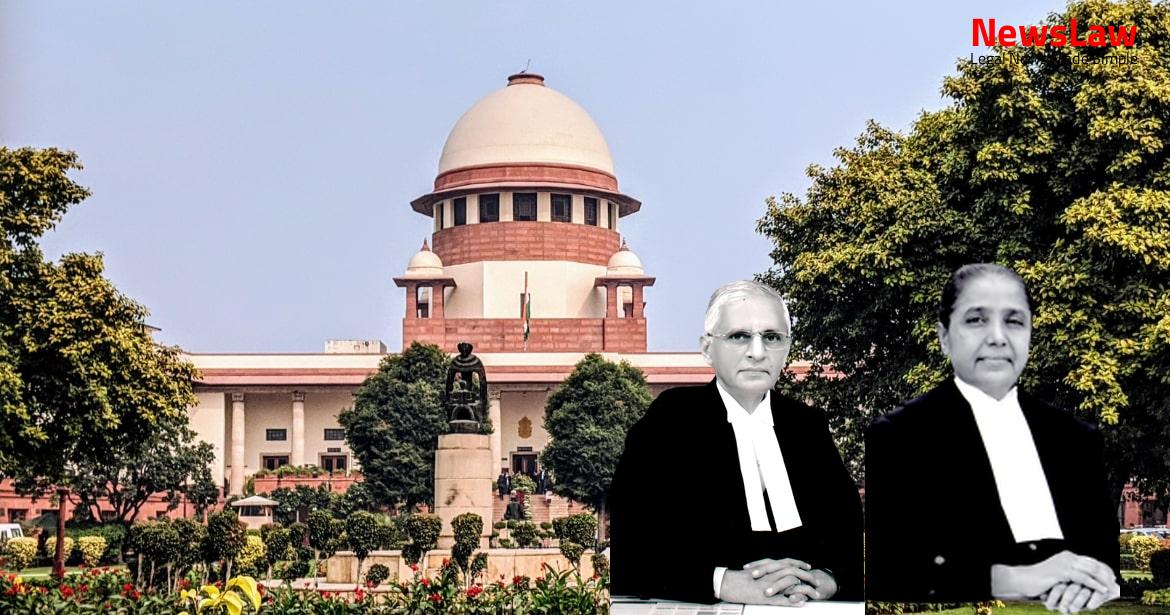In a significant legal battle, the Supreme Court of India recently delivered a judgment in a cheque dishonour case involving an apple orchard owner and a purchaser. The respondent, found guilty of dishonouring a cheque, has been ordered to pay a substantial fine. The petitioner, seeking justice for non-payment, emerged victorious as the High Court’s decision was overturned. This case sheds light on the importance of upholding legal obligations and the repercussions of cheque dishonour.
Facts
- The appellant, who owns an apple orchard, entered into transactions with the respondent for the purchase of apple crops and packing materials on credit basis.
- A cheque was issued by the respondent to the appellant for a settlement amount, but it was returned by the bank due to insufficient funds.
- The appellant stated that the cheque was filled up by the respondent himself and presented to him in the presence of witnesses.
- The appellant filed a legal notice in October 2011 after no payment was made despite the settlement agreement.
- The appellant and the respondent’s agent corroborated the appellant’s version of events during their testimonies.
- The cheque in question was found to be drawn towards the discharge of a debt, but it bounced due to insufficient funds.
- The Trial Court found that the production of entry Exh. DW1/A alone was not enough to prove that the accused did not issue the cheque, as it could have been fabricated to falsely claim a lost cheque.
- It was noted that the accused had the opportunity to file an FIR regarding the misuse of the cheque if it was truly lost, based on the acknowledgement of notice Exh. CW1/G.
- The presumption that the cheque amount represented a legally enforceable debt was considered valid as it was not successfully rebutted.
- A contradiction in the number of cartons mentioned in the complaint and the appellant’s statement was identified by the Trial Court.
- The discrepancy between the cheque amount and the alleged due amount on the presentation date led to the dismissal of the complaint.
Also Read: Lt. Col. Om Dutt Sharma vs. Ministry of Defence: OROP Entitlement for Army Postal Service Personnel
Arguments
- Mere fact of not replying to statutory notice does not prejudice the case of the respondent.
- The onus is on the accused-appellant to establish a probable defense to rebut this presumption
- The accused-appellant has not discharged the burden of proof in this case
- Refers to the case of M. S. Narayana Menon v. State of Kerala regarding using complainant’s evidence to rebut the presumption of consideration
- Learned counsel for the petitioner argued that the High Court did not appreciate the evidence properly.
- The counsel also pointed out the testimonies of witnesses were disregarded by the High Court.
- It was contended that the High Court erred in not considering crucial pieces of evidence that could have favored the petitioner.
- The counsel emphasized that the High Court’s decision was based on an unreasonable analysis of the facts presented in the case.
- Reference was made to a relevant case law that highlighted the importance of not reversing a judgment of acquittal solely based on the possibility of another view.
- The argument stressed on the need for a thorough review of the evidence and valid reasoning before overturning a judgment of acquittal.
Also Read: Inheritance Dispute: Validity of Alleged Marriage between Sujathamma and Hanumanthappa
Analysis
- In the judgment of Kishan Rao v. Shankargouda, the Court referred to Kumar Exports and Rangappa and made specific findings.
- Bir Singh v. Mukesh Kumar held that the presumption under Section 139 of the Act is a presumption of law.
- There were different versions regarding the number of apple cartons in the case, leading to a conclusion that the alleged amount claimed by the complainant could be less.
- The High Court cited judgments like Hiten P. Dalal v. Bratindranath Banerjee, Kumar Exports v. Sharma Carpets, and Rangappa v. Sri Mohan to establish the presumption that the cheque is for consideration unless proven otherwise.
- In the case of Rohitbhai Jivanlal Patel v. State of Gujarat and Another, certain findings were made by the Court regarding the issue at hand.
- The burden of proving that the cheque was issued for discharge of debt or liability lies on the accused.
- The accused failed to rebut the presumption of consideration in issuing the cheque.
- Witness statements and lack of evidence from the accused support the presumption of consideration.
- Contradictions in the accounts settled and statements by the accused do not disprove issuance of the cheque.
- The accused’s failure to lodge an FIR regarding the lost cheque raises doubts.
- Denials of existence of debt must be supported by evidence to rebut statutory presumptions.
- The accused’s mere accusations of misuse of the cheque without evidence are insufficient.
- The courts’ dismissal of the complaint due to discrepancies is deemed irrational and illegal.
- Negotiable instruments like cheques carry a presumption of consideration, which was not successfully rebutted by the accused.
- The approach of the Trial Court and High Court was found to be perverse and not sustainable under Section 138 of the Act.
- In Vijay v. Laxman and another, grave discrepancies were found in the case of the complainant.
- The High Court set aside the conviction due to clear evidence contradicting the perverse findings.
- No case was found for the conviction based on the discrepancies in the complainant’s case.
- The conclusion reached by the Trial Court and the High Court to acquit Ms. Mathew is considered illegal and unsustainable in law by the current Court.
- The findings by the lower courts are deemed as a misreading of statutory provisions, especially as the respondent did not present evidence to counter the presumption of consideration.
- Merely pointing out discrepancies in statements regarding items or rates charged does not suffice to rebut the legally presumed consideration, which was supported by CW3 Prem Chand’s testimony.
Also Read: Seniority Determination in Uttarakhand Pey Jal Nigam: Regulation 23 vs Government Order
Decision
- The respondent is found guilty of dishonouring a cheque under Section 138 of the Act.
- The respondent is required to pay a fine of Rs.10,77,712, which is twice the amount of the bounced cheque and a litigation cost of Rs.1,00,000 within three months.
- Failure to pay the fine and costs within the specified time will lead to imprisonment for six months.
- The present appeal has been allowed and the High Court’s order has been overturned.
Case Title: UTTAM RAM Vs. DEVINDER SINGH HUDAN
Case Number: Crl.A. No.-001545-001545 / 2019



